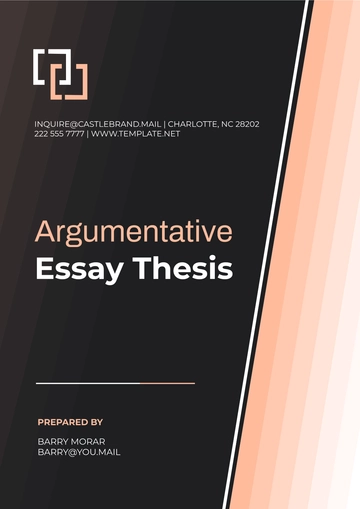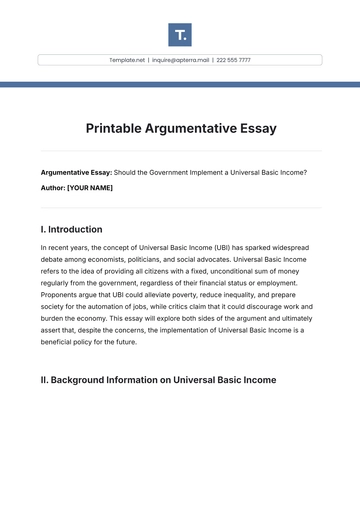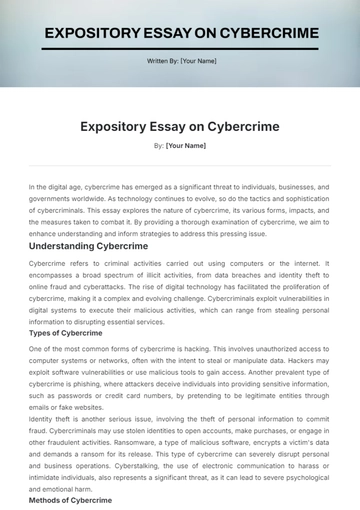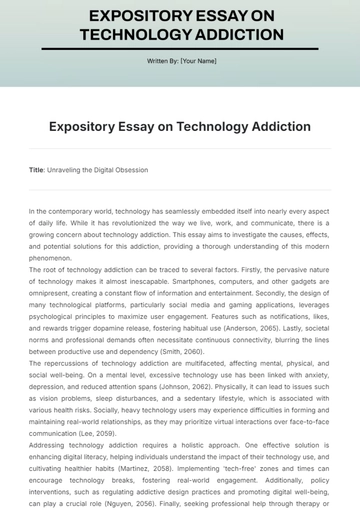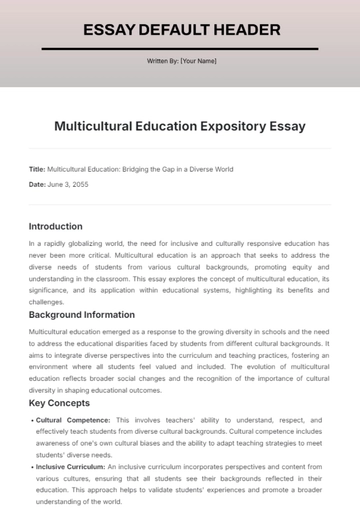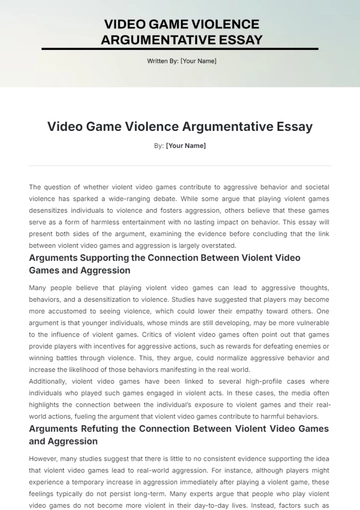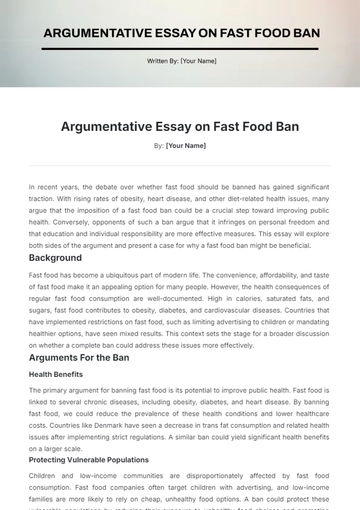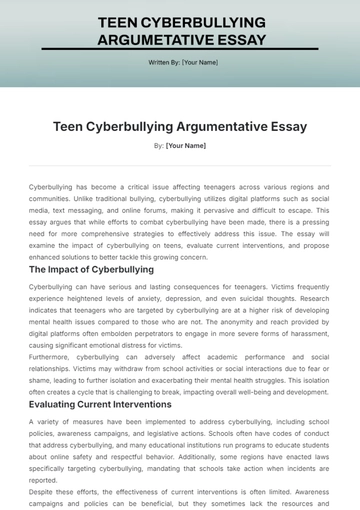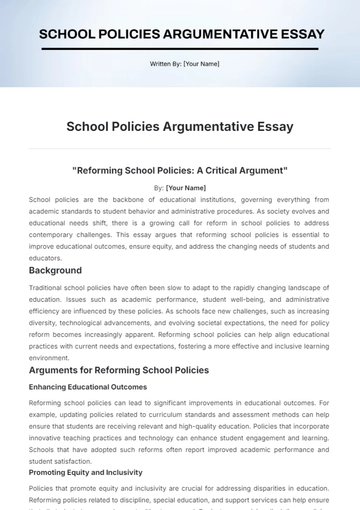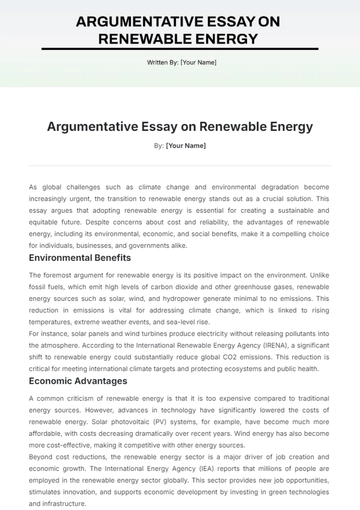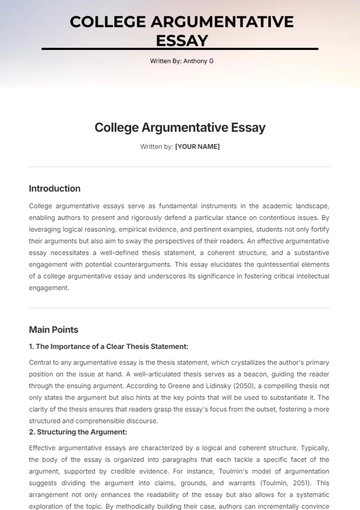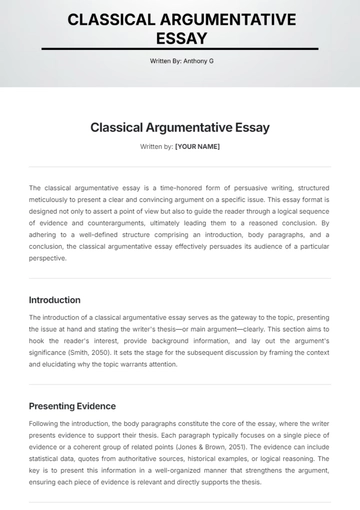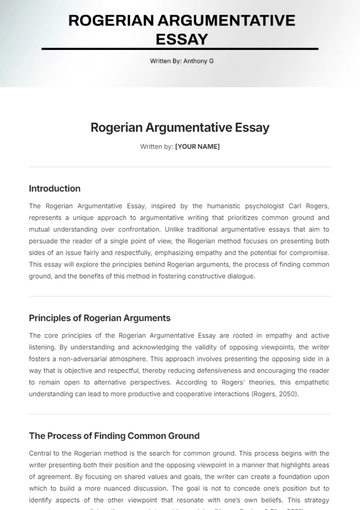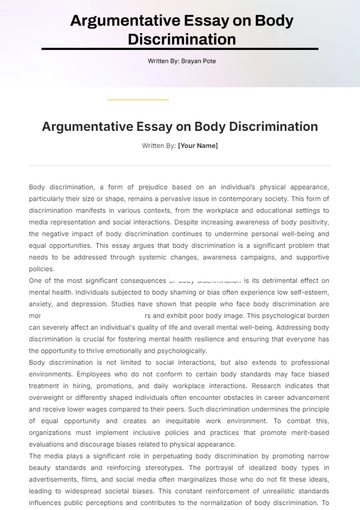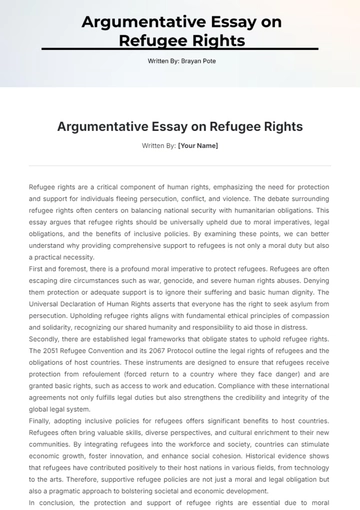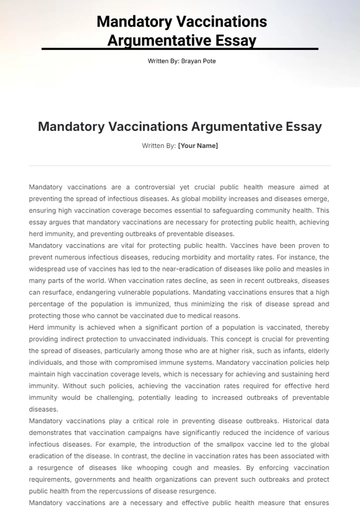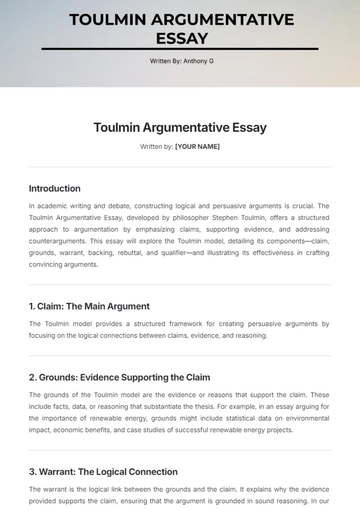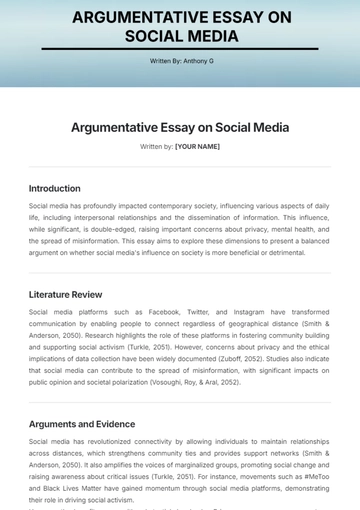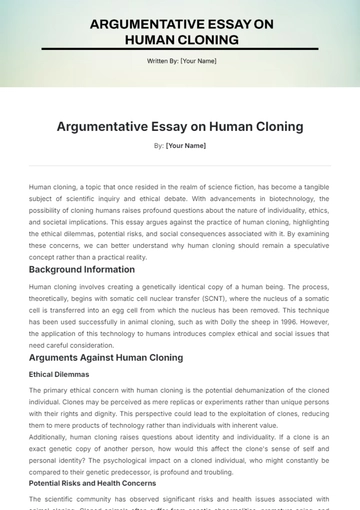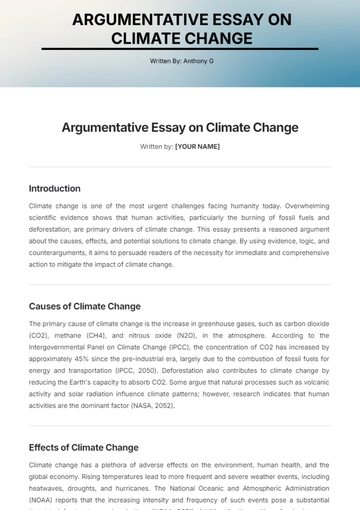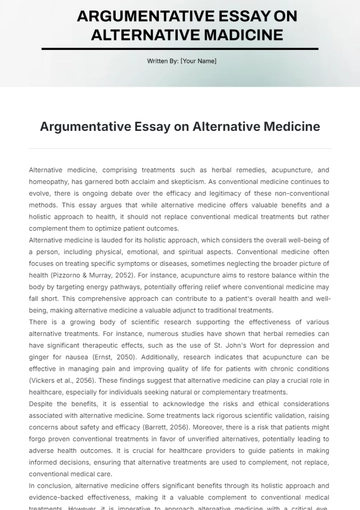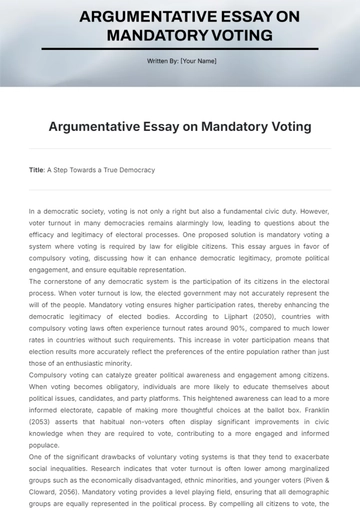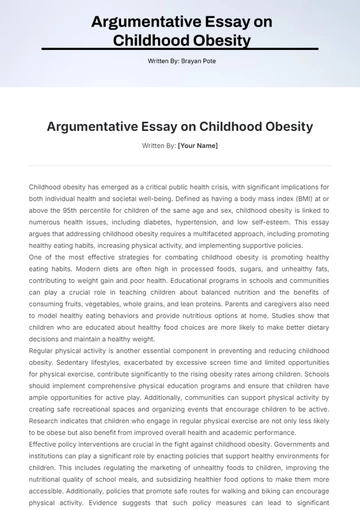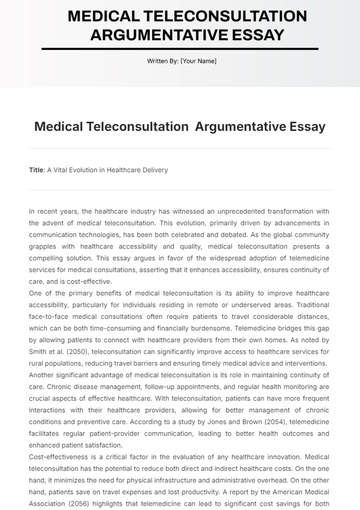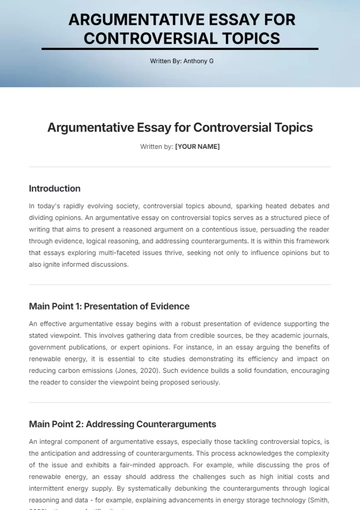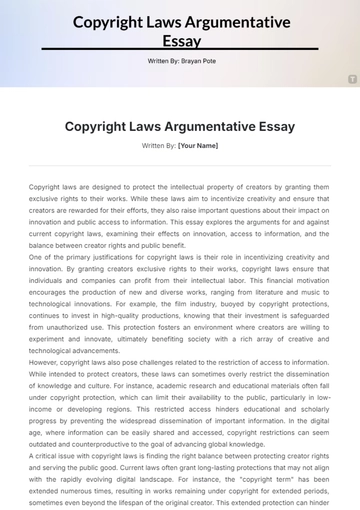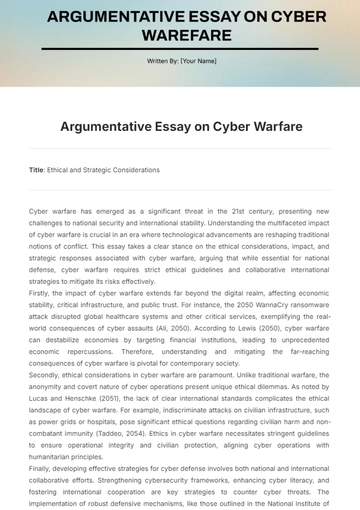Free College Argumentative Essay
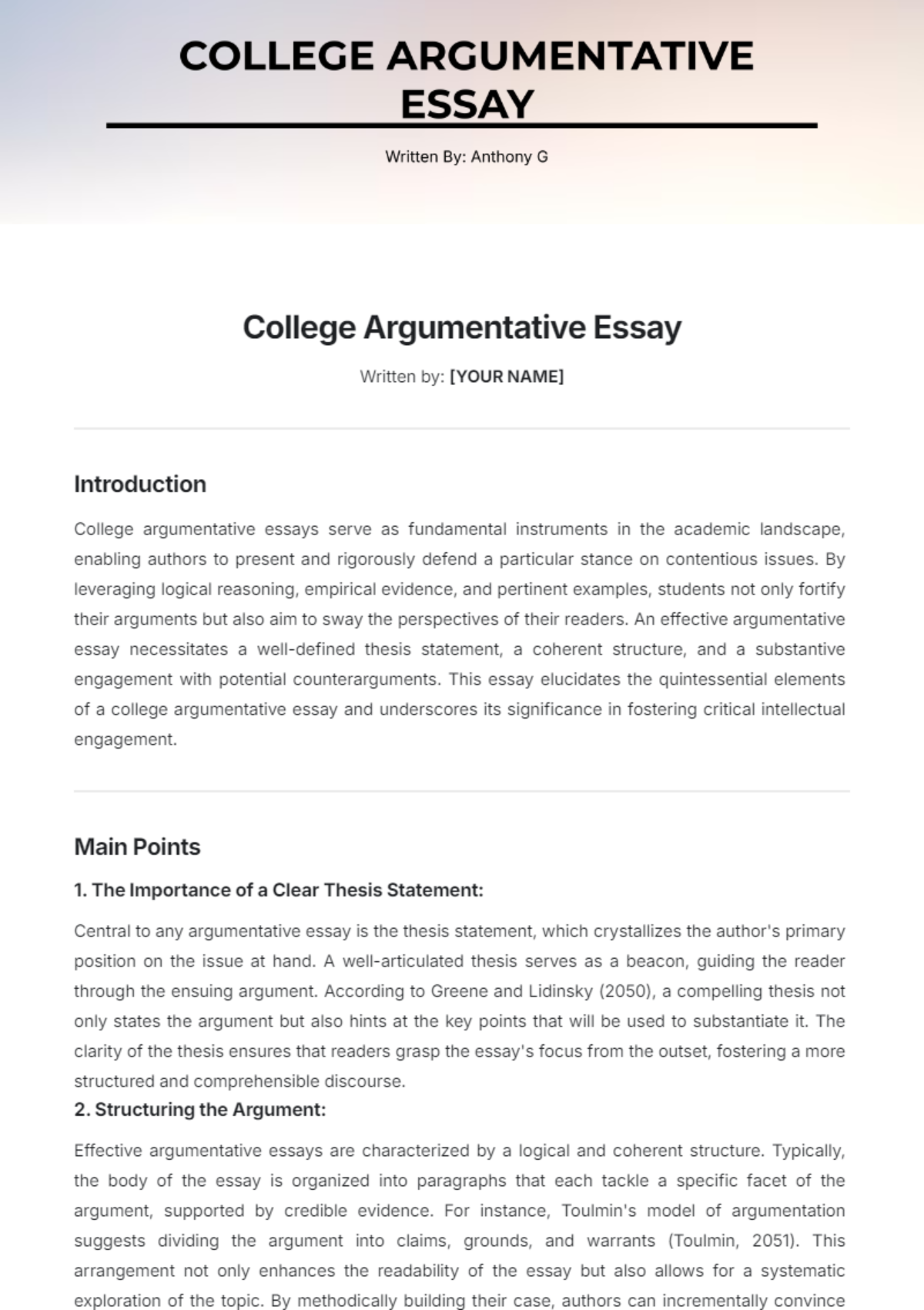
Written by: [YOUR NAME]
Introduction
College argumentative essays serve as fundamental instruments in the academic landscape, enabling authors to present and rigorously defend a particular stance on contentious issues. By leveraging logical reasoning, empirical evidence, and pertinent examples, students not only fortify their arguments but also aim to sway the perspectives of their readers. An effective argumentative essay necessitates a well-defined thesis statement, a coherent structure, and a substantive engagement with potential counterarguments. This essay elucidates the quintessential elements of a college argumentative essay and underscores its significance in fostering critical intellectual engagement.
Main Points
1. The Importance of a Clear Thesis Statement:
Central to any argumentative essay is the thesis statement, which crystallizes the author's primary position on the issue at hand. A well-articulated thesis serves as a beacon, guiding the reader through the ensuing argument. According to Greene and Lidinsky (2050), a compelling thesis not only states the argument but also hints at the key points that will be used to substantiate it. The clarity of the thesis ensures that readers grasp the essay's focus from the outset, fostering a more structured and comprehensible discourse.
2. Structuring the Argument:
Effective argumentative essays are characterized by a logical and coherent structure. Typically, the body of the essay is organized into paragraphs that each tackle a specific facet of the argument, supported by credible evidence. For instance, Toulmin's model of argumentation suggests dividing the argument into claims, grounds, and warrants (Toulmin, 2051). This arrangement not only enhances the readability of the essay but also allows for a systematic exploration of the topic. By methodically building their case, authors can incrementally convince their readers of their perspective's validity.
3. Addressing Counterarguments:
To fortify their position, authors must anticipate and respond to potential counterarguments. Engaging with opposing views demonstrates an understanding of the complexity of the issue and showcases the author's critical thinking skills. As posited by Harris (2052), acknowledging and refuting counterarguments can strengthen the original argument by revealing its robustness despite scrutiny. This not only bolsters the author's credibility but also ensures a more balanced and comprehensive discussion.
Conclusion
In conclusion, college argumentative essays are indispensable in the realm of academic writing, empowering students to present and defend their positions on divisive topics. The significance of a clear thesis statement, a structured argument, and the inclusion of counterarguments cannot be overstated. These elements collectively contribute to a persuasive and intellectually rigorous essay. As students hone their argumentative writing skills, they not only advance their academic prowess but also cultivate critical thinking abilities that are essential beyond the confines of academia.
Bibliography
Greene, S., & Lidinsky, A. (2050). From Inquiry to Academic Writing: A Practical Guide. Bedford/St. Martin's.
Harris, J. (2051). Rewriting: How to Do Things with Texts. Utah State University Press.
Toulmin, S. (2052). The Uses of Argument. Cambridge University Press.
- 100% Customizable, free editor
- Access 1 Million+ Templates, photo’s & graphics
- Download or share as a template
- Click and replace photos, graphics, text, backgrounds
- Resize, crop, AI write & more
- Access advanced editor
Unlock your potential with the College Argumentative Essay Template from Template.net. This fully editable and customizable tool allows you to tailor your essay precisely to your needs. Easy to use and editable in our AI Editor too, it ensures your arguments are clearly structured and professionally presented. Enhance your writing with this versatile template today!
